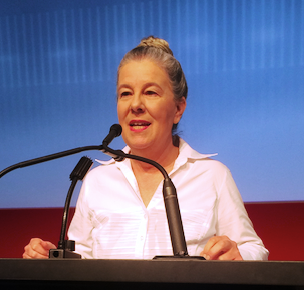- Home
- About Us
- The Team / Contact Us
- Books and Resources
- Privacy Policy
- Nonprofit Employer of Choice Award

 Did you ever reach into the pocket of an old coat and find $20? Remember that feeling of excitement? It was truly found money - a surprise and a treat. Something you did not expect.
Did you ever reach into the pocket of an old coat and find $20? Remember that feeling of excitement? It was truly found money - a surprise and a treat. Something you did not expect.
In these tough times, you are likely looking for ways to increase revenue. If your charity has been around for longer than 20 years, one place to find money now may be to look into the books of your charity. You may be able to identify money that can be transferred to a use today.
It is common in older charities for there to be restricted funds. This is money set aside for a particular purpose. There are also often memorial funds that have been set aside. Commonly, particularly in older charities, there may be pockets of money in these funds where the money is no longer useful for the original purpose. Often, the documentation may be lost, there was never any documentation, or the funds were never restricted. This may be a good time to look into those funds to see if you can reasonably use those funds today for a relevant purpose.
An important part of this exercise is to start a conversation with your accounting department to see if they can identify any funds that have been inactive for more than five years and where, to the best of their knowledge, there is no documentation for the use of the fund. This may take some digging on both of your parts. You may have to make a one-time trip to your office, if you are working from home, to look at old paper files to see if you can find any gift agreements or other information. You will also want to see the names of anyone associated with the fund.
Once you have identified funds without documentation, without recent activity, and with no one with current ties to your charity, a good next step is to do a quick google search for the original donor's obituary to find if there are any family you can contact. If you can find living family members, you should reach out to seek their input as to relevant use of the funds. If no family exists, your files may provide some guidance about possible other uses for the money in a fund.
At this point, it is worth checking with your auditors for some guidance on next steps. If you can make a case that there is no documentation, that you were unable to find any heirs or family, and you have developed a way to spend the money today in a way that is reasonable and relevant, your auditors may give you the green light. In some cases, they may direct you to speak with a lawyer.
For example, there may be a fund that includes donations given in memory of a particular person. If you have a room in your building named for that person that requires repairs, you might use the money from the fund for those repairs. Another idea could be if you have a fund for a particular purpose, like a library to help people learn more about your cause. You may consider using those funds towards the hard costs of a website redesign to help people learn more about your cause in the way that is more common today.
As part of this process, it is important to respect the spirit of the fund and the memory of the donor. I strongly recommend you develop a way of recognizing this gift today. As an example, you might use the money to underwrite a particular program or service. For the time that the funds are underwriting this, you would include "this program generously underwritten by the [XYZ] Fund." This is a respectful way to honour the donor and the fund. As an alternative, you might add the fund to an existing donor wall so that the gift has ongoing visibility.
An additional benefit of undertaking this process is that, down the road, it can streamline your accounting and make your audit easier. While that may not be the primary reason, it can help save a bit of time and money, which are doubly precious these days.
This process is not as easy as finding money in a coat pocket. If you have funds languishing unused, now is the time to look into unlocking them to help your organization thrive today and be there tomorrow.
Ann Rosenfield is a working fundraiser. Over the years, she has often had the honour of working with donors to transform outdated funds into ones that are relevant today.
Cover photo by Joshua Hoehne on Unsplash